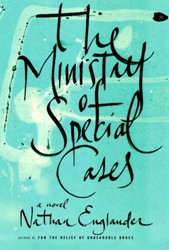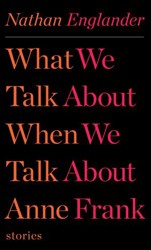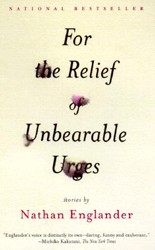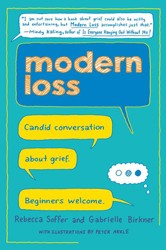Three cheers for Nathan Englander, back on his home turf in his best novel to date. In kaddish.com, set in the Modern Orthodox world, a sometimes-erratic man named Shuli struggles to make his life whole again after the death of his beloved father. Shattered by his loss, Shuli can’t cope with his unfocused anger. He has abandoned the religious life which his father cherished and rebels against the strictures of shiva, the week-long mourning process, for the father he loved. He can’t even bring himself to commit to saying the Kaddish memorial prayer regularly.
Shuli thinks he’s found the perfect solution when he stumbles across a website, kaddish.com, that promises to find someone to say the Kaddish prayer for him — “like a JDate for the dead,” as he puts it. But no sooner does he take that step than a sense of guilt overcomes him, and he embraces the Orthodoxy he thought he had left behind.
As in any quest, Shuli’s success depends on the people he meets along the way. One pivotal change comes when he meets a yeshiva boy who has also rebelled in the face of loss.His wife also plays a significant role, as she helps him learn to moderate his obsessiveness.
Yet, Shuli is still not at peace. He can’t escape the guilt he feels for having used kaddish.com instead of saying the Kaddish himself, and he begins to obsess about how to undo what he has done. His guilt takes him to Jerusalem, where he learns a dismaying secret but ultimately finds the beginnings of his own redemption.
kaddish.com is a more intimate novel than either of Englander’s other two. Both Dinner at the Center of the Earth, which centered around Israeli politics and politicians, and The Ministry of Special Cases, which dealt with the dictatorship in Argentina, were deeply affecting but bear the weight of background research. In kaddish.com, the settings and the people are second-nature to Englander. When he writes about a yeshiva, or the Nachla’ot neighborhood of Jerusalem, he has an especially keen eye and ear. He has always had an instinct for the telling detail, and it’s a continual delight for the reader, as his fans — especially of his short stories — will attest.
kaddish.com has many virtues: the brisk pace of the story, the appealing supporting characters, the ongoing suspense. Chief among them, though, is Englander’s abiding sympathy for people and the mistakes they make, and his understanding of the aching need for forgiveness.
Bob Goldfarb is President Emeritus of Jewish Creativity International.





